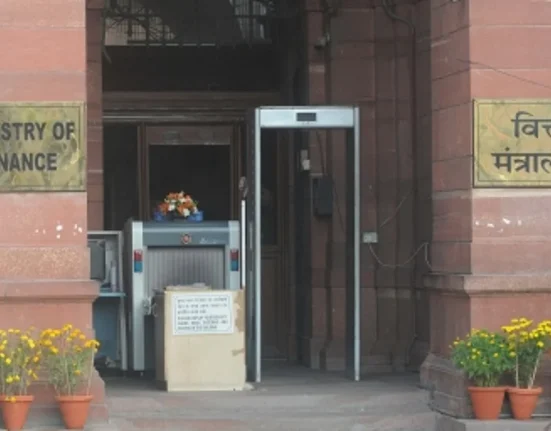Britain prides itself on being a payments champion. The UK pioneered instant bank transfers with the launch of faster payments in 2008. A decade later, new data-sharing technology promised to usher in a new era.
But while “open banking” has found success in various corners of finance — such as by enabling faster lending decisions and new budgeting tools — it has so far failed to deliver the promise of powering a payments revolution.
Open banking powered a total of 27mn payments in the UK in March, according to Open Banking Limited. By contrast, the Payments Systems Regulator recorded 1.92bn card transactions in February, its latest available data.
The technology allows customers to share their financial information with other banks, apps and online retailers; it permits lenders to initiate “pay by bank” remittances by sending information to receiving banks, without the need for card intermediaries such as Mastercard and Visa.
The fanfare around open banking arose as fintech boomed in the UK in the last decade, at a time when regulators sought to foster competition in the wake of the financial crisis. This helped position London as a leader in the sector. It became home to Europe’s most highly valued start-up, Revolut, and the second most attractive destination for fintech investment after the US, according to trade body Innovate Finance.

The fintech boom also helped a crop of start-ups such as TrueLayer and GoCardless raise millions from investors including China’s Tencent and US payment company Stripe as they sought to offer alternatives to legacy payment routes. By allowing shoppers to forgo card payments with the option to “pay by bank” at retailers’ checkouts, the companies hoped to alleviate the faff of typing out clunky card details and to free merchants from Visa and Mastercard’s fees.
But the British homegrowns have failed to turn a profit while higher interest rates have damped investor sentiment for the sector. Lossmaking TrueLayer laid off a quarter of its workforce last year before announcing a 30 per cent valuation drop that toppled its $1bn “unicorn” valuation status.
Rival GoCardless — a company co-founded by Monzo founder Tom Blomfield — cut 20 per cent of its workforce last year in a bid to reduce cost and reach profitability by 2026. Company insiders insist it is close to making a profit.
“It’s a bubble,” said one adviser to open banking companies who asked not to be named, referring to the lofty fundraising they previously received during a wider hype cycle around the fintech sector.
GoCardless declined to comment.
A spokesperson for TrueLayer said that “the perception that open banking hasn’t taken off is incorrect” and that the start-up had been “one of the fastest fintechs globally to reach 100bn in annualised payments processed — signalling rapid consumer and merchant adoption.”
“Pay By Bank is inevitable at this point and gaining critical-mass adoption,” the TrueLayer spokesperson added.
Still, according to Rebecca Hickman, a partner at law firm Addleshaw Goddard, “uptake of Pay by Bank solutions has been slower than many expected”.
The challenges to the sector were also highlighted in a government-commissioned review into the competitiveness of UK payments led by former Nationwide chief executive Joe Garner.
Garner warned that the UK was “at risk of falling behind” other countries and described Big Tech’s push into payments as an “inflection point”. He urged Britain to help develop its open banking industry by getting rid of regulatory overlap and developing a national payments strategy — which the Labour government ended up publishing late last year.
The failure of open banking to meet its lofty ambitions in Britain is of particular concern to the government because the technology pioneered in the UK has boomed in other markets with lower card penetration, such as Brazil and India.
Addleshaw’s Hickman said that one of the factors behind the slower than expected adoption of Pay by Bank was a “lack of customer understanding or trust”.
Many potential users are not aware that the new technology is available. A 2018 study by YouGov found that nearly three-quarters of UK adults had not heard of open banking.
Another hurdle is the fact that people simply do not see the benefit of paying via open banking. Online card payments have become more seamless in recent years, thanks in part to the rise of digital wallets such as Apple Pay and Google Pay.
“The problem is not that open banking doesn’t work,” said Riccardo Tordera-Ricchi, director of policy at the Payments Association. “It’s the fact that [other] payments work very well.”
Customers are also put off by the lack of consumer protection. Despite charging merchant fees, Mastercard and Visa offer something that open banking does not: a “chargeback” dispute mechanism that allows consumers to be refunded if they get scammed or purchase a faulty item.
This is especially crucial for online shoppers whose trust is being eroded by the rise of payment fraud. Britons lost nearly £2.1bn to fraud in 2023, according to trade body UK Finance.
Having accepted that the ship may have sailed for Pay by Bank to truly challenge the dominance of Visa and Mastercard over retail purchases, the industry has turned its focus to the next frontier for open banking: variable recurring payments, or VRP. The new payment method would allow third parties to take payments directly from customers’ bank accounts.
Regulators and industry have been looking to launch commercial VRP to compete with direct debits and allow customers to pay utility bills, charity donations and subscriptions in a more flexible way — with, for instance, the option to adjust the value of the payments over time.
But launching the new payment system has been tough so far. Its proponents are faced with having to build a commercial model. As banks have been mandated by the government to participate in open banking for free, lenders that make money from other payment routes such as card fees have no incentive to invest in implementing a rival system.
Regulatory overlap and red tape have also hindered the development of VRPs. Progress stalled as the project was shared by a joint task force split between two regulators, the Financial Conduct Authority and the payments regulator.
But after two years of limbo the industry is starting to regain hope that it can finally commercialise variable recurring payment. The UK government made it a key objective of its “national payments vision” unveiled by chancellor Rachel Reeves at Mansion House.
In an effort to boost the sector and get rid of red tape, the government also announced plans to scrap the Payments System Regulator and tasked the FCA with delivering VRPs, while reminding the watchdog of its secondary objective of boosting growth.
Earlier this month, 31 companies including banks and fintechs finally agreed to jointly fund the next stage in the development of VRPs.
“We are now regaining our crown,” said Helen Child, the head of industry body Open Banking Excellence. “We spent too long talking about things as opposed to lacing up our trainers.”







